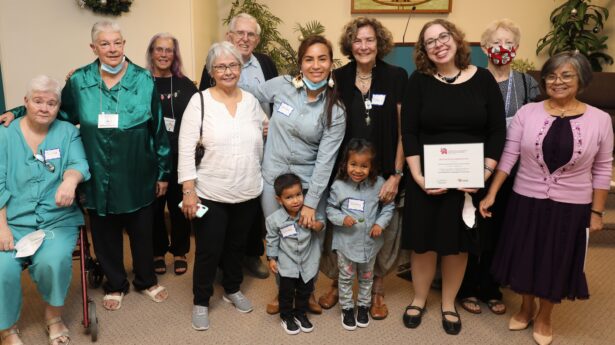The Unitarian Universalist Service Committee advances human rights through grassroots collaborations.
Migration App Brings Worry, Frustration for Asylum-Seekers

By UUSC Staff on March 1, 2023
The Biden Administration has hoped to make significant shifts in how the United States handles migration through its southern border, and the use of the CBP One app to process asylum-seekers is part of those efforts.
While the government sees this expanded use of the app as a more humane, organized, and efficient way of protecting the right to asylum, activists and advocates have mixed feelings about how the data—especially the user’s biometric information—will be protected and used by the government.
An expanded use, but at what cost?
In January, the U.S. Department of Homeland Security (DHS) announced that people seeking asylum who are asking to be exempt from Title 42 on humanitarian grounds may now use the CBP One app to start the application process and schedule appointments at land ports of entry on the U.S. border with Mexico.
Launched in 2020, DHS is expanding its use of CBP One to require asylum-seekers to schedule an appointment at a port of entry. Asylum-seekers who cross the border without using the app will face immediate expulsion.
The app uses facial recognition technology and GPS tracking to perform several of its functions, subjecting users to the inherent risks of these technologies. Collection of biometric data—physical information unique to individuals and that hardly changes over time—by government agencies is a controversial subject. It’s estimated that DHS and Customs and Border Protection already have biometric data on hundreds of millions of U.S. citizens and non-U.S. citizens alike. It’s unclear what the agencies plan to do with this new treasure trove of data coming to them from undocumented people in migration, many of whom will ultimately be denied access to the United States.
Additionally, the app doesn’t seem to work well, especially for people without a phone or tablet.
In the words of Erika Pinheiro, executive director of UUSC ally Al Otro Lado, “I don’t see the purpose of this app facilitating access to asylum, I see it as restricting access to asylum.” Hear more from Pinheiro in this interview and this article on why migration justice advocates fear the CBP One app will do asylum-seekers more harm than good.
In this age of artificial intelligence, GPS tracking capability, and the struggle for privacy of personal data, it’s difficult to understand the implications of this new CBP One app functionality. It’s hard to imagine that this data won’t be used to expand surveillance of a group of people seeking protection.

